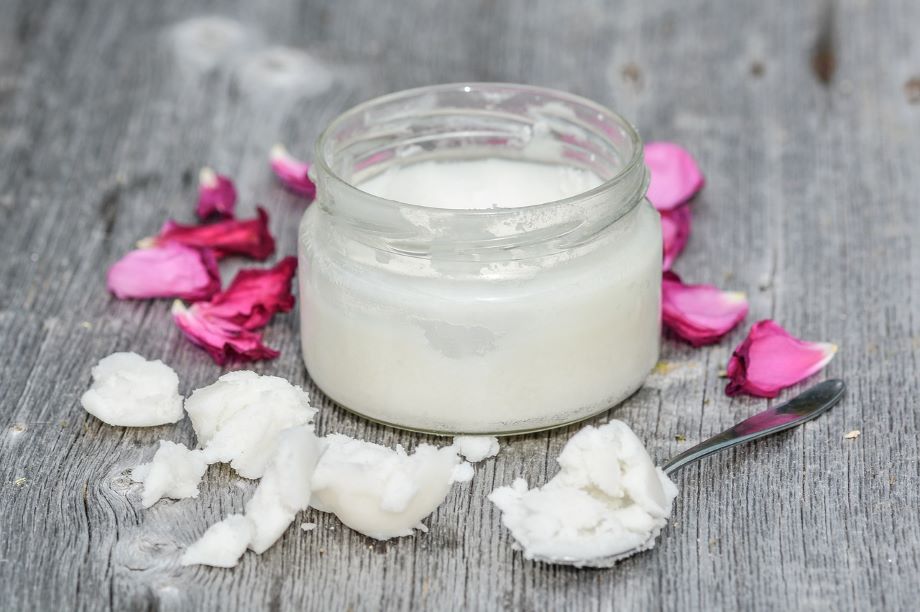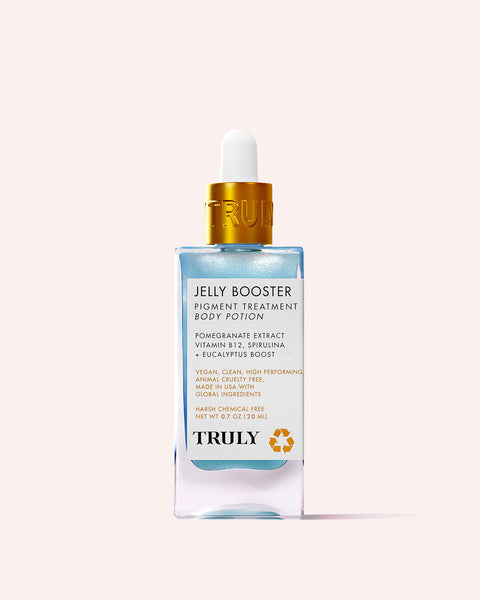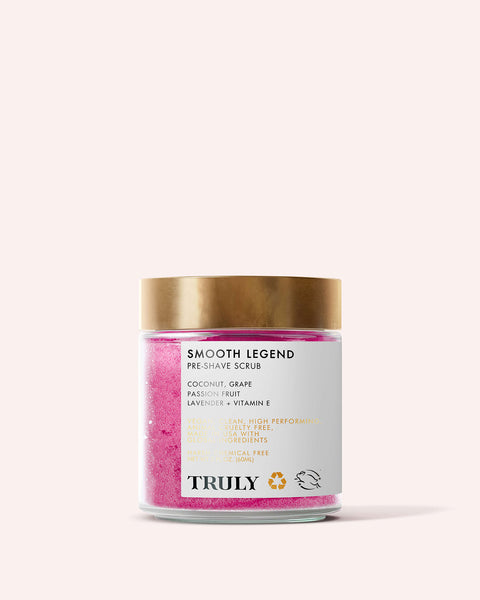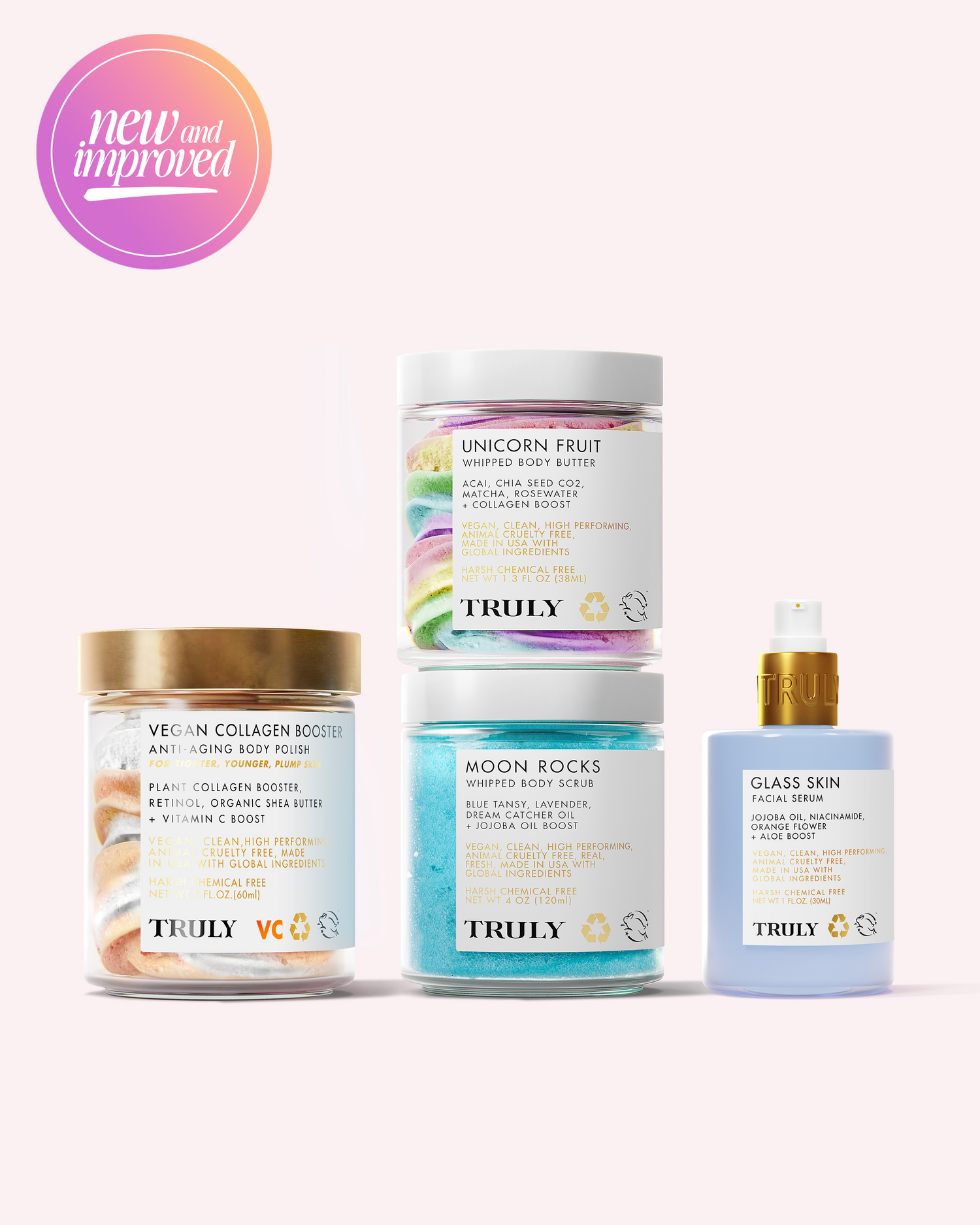Does Coconut Oil Clog Pores?

Does coconut oil clog pores? It’s one of the most celebrated skincare ingredients for its ability to moisturize and soften the skin. With powerful antimicrobial properties, coconut oil even combats acne-causing bacteria. And yet, the question still remains: does coconut oil clog your pores?
Over the years, there’s been much debate over whether or not it’s good to use coconut oil on your skin. Mostly, because it’s been deemed comedogenic—meaning it produces non-inflamed acne such as blackheads and whiteheads. So what does that mean for you? Is it safe to use coconut oil if you have acne-prone skin? Here’s what you should know.
Does Coconut Oil Clog Pores?
Since coconut oil is a comedogenic product, it does have the ability to clog your pores. There’s no denying coconut oil has a number of perks. Packed with antioxidants and fatty acids, it’s a powerful skin hydrator that can relieve dry skin. It can also soothe irritated, inflamed skin thanks to its anti-inflammatory properties. On the downside, coconut oil can clog pores which may lead to breakouts. Most dermatologists do not recommend coconut oil to people with acne-prone skin.
Coconut oil is a thick oil that isn’t easily absorbed by your skin. Essentially, it just sits on top of the skin, forming a film over the pore. Combined with the mixture of bacteria and dead skin cells that accumulate under the skin, your body ends up producing excess sebum, which can lead to acne.
On the other hand, harsh cleansers and serums can be extremely drying which may result in more breakouts. In that case, coconut oil can help to heal blemishes by balancing sebum production. What’s more, coconut oil can be beneficial for those with dry and sensitive skin types thanks to its high content of nutrients and anti-inflammatory properties.
How To Use Coconut Oil Without Clogging Pores
Does coconut oil clog pores? Using raw coconut oil on its own can clog your pores. Its lipid-rich properties create a skin barrier that locks in moisture, but when there are too many lipids on the skin and not enough water, this causes clogging—which is made worse if you also have a buildup of dead skin cells.
However, not all coconut oil products are automatically comedogenic. Several tests have confirmed that finished products using coconut oil are not always comedogenic. In a traditional emulsion, for instance, oil particles are smaller, making it less likely to cause comedones. The bottom line: using coconut oil raw is more likely to clog your pores as opposed to using it as an ingredient in a skincare product such as a cream or lotion.
If you have oily skin or acne-prone skin, you’re best off doing a patch test to ensure coconut oil doesn’t make you break out. Simply apply coconut oil to one area of the face for a few days. If you don’t experience breakouts, you can safely include it in your regular skincare routine.
Another way to enjoy the benefits of coconut oil if you’re blemish-prone is using it as a makeup remover. Coconut helps to melt away makeup while cleansing the skin thanks to its antibacterial properties. And because you rinse afterwards, you reduce the risk of coconut oil clogging pores.
Best Coconut Oil Skincare Products
The best way to benefit from coconut oil is choosing formulas that contain this natural ingredient rather than using it on its own. Here are some of our favorite coconut oil skincare treatments.
Truly’s Unicorn Babe Routine
SHOP FOR PLUMPER SKIN
Meet our enchanting, rainbow-swirled, viral worthy Unicorn Babe Bundle. You’ll get: an ultra hydrating Unicorn Fruit Body Butter, plumping Unicorn Fruit Lip Plumping Balm, and our #Heart Your Imperfections Acne Patches to heal blemishes overnight. Enriched with coconut oil, shea butter, acai berry, and hydrocolloid.
Truly’s Glass Skin Set
SHOP TO BLUR PORES
Plump and refine pores with this 2-step facial routine. It features a 2-in-1 cleansing balm and makeup remover + serum to melt away impurities, minimize pores, and clarify blemishes while giving skin an instant glow. A blend of coconut oil, jojoba oil, niacinamide and probiotics work together to deeply hydrate, balance sebum production, and soothe irritation.
Truly’s 24K Gold Black Soap Luxury Impurity Cleanser
SHOP TO CLEAR BREAKOUTS
This exfoliating cleanser targets both acne and signs of aging with its unique blend of charcoal, coconut oil, 24k gold, and African black soap. It absorbs excess oil and removes pore-clogging dead cells and impurities, all while injecting skin with powerful antioxidants to keep your complexion smooth and firm.
Truly’s Glazed Donut Skin Set
SHOP FOR GLOWING SKIN
You’ll find plenty of coconut oil in our iconic Glazed Donut Skin Set. Inside, you’ll find a facial serum and cream powered by coconut oil, grapeseed oil, and vitamin E to nourish, strengthen, and leave skin luminous.
Who Should Not Use Coconut Oil on Face?
Does coconut oil cause clogged pores for all skin types? If you have oily skin or are blemish-prone, it’s best to avoid using coconut oil on acne-prone areas—especially the face, chest, and back which are areas of your skin with the most oil glands. That said, coconut oil helps to balance oil production and with its antibacterial activity, may be helpful in treating acne.
It’s always best to choose products that contain coconut oil rather than using it raw to reduce your chances of breaking out. Alternatively, do a patch test before using to see your skin’s reaction to the ingredient.
Non-Comedogenic Oil Alternatives
Looking to increase hydration of your skin without blemishes? The derms recommend natural oils such as jojoba oil, grapeseed oil, and argan oil which rate much lower on the comedogenic scale while still delivering nourishing fatty acids and nutrients that benefit your skin. Jojoba oil is one of the best as it won’t clog your pores and even helps to stop the skin from overproducing sebum.
These oils all work to alleviate dryness while soothing irritation. They can even balance oil production, preventing clogged pores and ultimately breakouts.
Quick Tips to Prevent Clogged Pores

Will coconut oil clog pores? Coconut oil can congest your pores since it is a comedogenic ingredient. Here are some tips for preventing clogged pores.
✔ Cleanse daily with a gentle, non-comedogenic cleanser to remove oil, dirt, and makeup.
✔ Exfoliate 2-3 times a week with a cleanser or toner containing chemical exfoliants like salicylic acid or glycolic acid to remove pore-clogging dead skin cells.
✔ Always remove your makeup before going to bed to prevent it from mixing with oils and clogging pores overnight.
✔ Regularly change and wash your pillowcases and sheets to prevent the buildup of oils and bacteria that can transfer to your skin.
✔ Consider using retinoids which can be beneficial for preventing clogged pores and promoting skin cell turnover.
Learn more in our Clogged Pores: Ultimate Guide
Does coconut oil clog pores? Coconut oil can clog your pores and possibly cause acne, which is why it’s important to use with care. The derms suggest using coconut oil within formulas rather than its raw form to prevent clogging your pores.
With its medium-chain fatty acids, such as lauric acid, coconut oil is an excellent ingredient for hydrating the skin and alleviating dryness. Some say it can even ease symptoms associated with skin conditions like eczema. Can coconut oil clog pores? It has the ability to clog your pores which is why it’s essential to use it properly.
WATCH our 10 second pore-clearing tutorial:
Image by Monika, Pixabay













